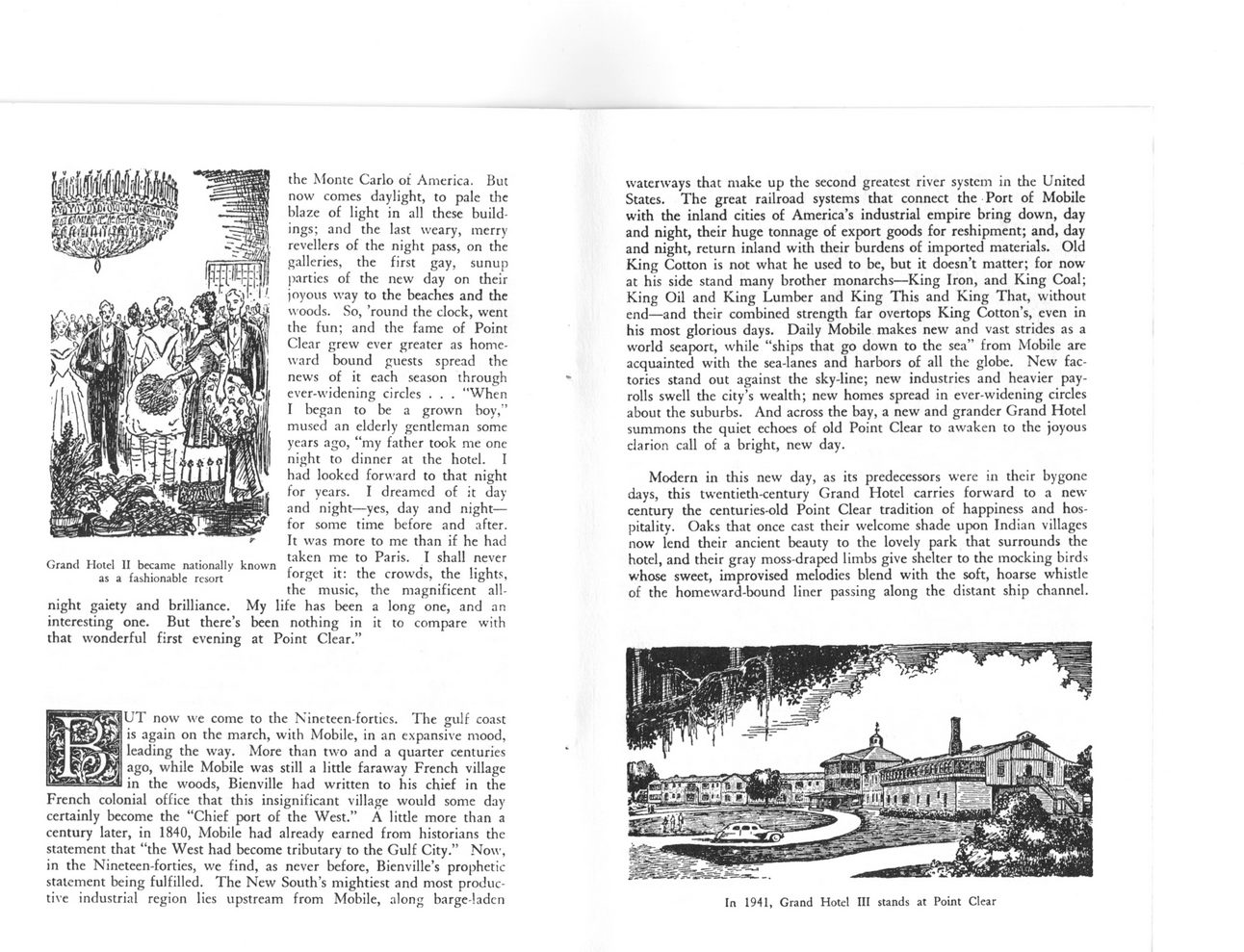This text was obtained via automated optical character recognition.
It has not been edited and may therefore contain several errors.
the Monte Carlo of America. But now comes daylight, to pale the blaze of light in all these buildings; and the last weary, merry revellers of the night pass, on the galleries, the first gay, sunup parties of the new day on their joyous way to the beaches and the woods. So, ?round the clock, went the fun; and the fame of Point Clear grew ever greater as homeward bound guests spread the news of it each season through ever-widening circles . . . ?When I began to be a grown boy,? mused an elderly gentleman some years ago, ?my father took me one night to dinner at the hotel. I had looked forward to that night for years. I dreamed of it day and night?yes, day and night? for some time before and after. It was more to me than if he had taken me to Paris. I shall never forget it: the crowds, the lights, the music, the magnificent all-night gaiety and brilliance. My life has been a long one, and an interesting one. But there?s been nothing in it to compare with that wonderful first evening at Point Clear.? Grand Hotel II became nationally known as a fashionable resort UT now we come to the Nineteen-forties. The gulf coast is again on the march, with Mobile, in an expansive mood, leading the way. More than two and a quarter centuries ago, while Mobile was still a little faraway French village in the woods, Bienville had written to his chief in the French colonial office that this insignificant village would some day certainly become the ?Chief port of the West.? A little more than a century later, in 1840, Mobile had already earned from historians the statement that ?the West had become tributary to the Gulf City.? Now, in the Nineteen-forties, we find, as never before, Bienville?s prophetic statement being fulfilled. The New South?s mightiest and most productive industrial region lies upstream from Mobile, along barge-laden waterways that make up the second greatest river system in the United States. The great railroad systems that connect the Port of Mobile with the inland cities of America?s industrial empire bring down, day and night, their huge tonnage of export goods for reshipment; and, day and night, return inland with their burdens of imported materials. Old King Cotton is not what he used to be, but it doesn?t matter; for now at his side stand many brother monarchs?King Iron, and King Coal; King Oil and King Lumber and King This and King That, without end?and their combined strength far overtops King Cotton?s, even in his most glorious days. Daily Mobile makes new and vast strides as a world seaport, while ?ships that go down to the sea? from Mobile are acquainted with the sea-lanes and harbors of all the globe. New fac- tories stand out against the sky-line; new industries and heavier payrolls swell the city?s wealth; new homes spread in ever-widening circles about the suburbs. And across the bay, a new and grander Grand Hotel summons the quiet echoes of old Point Clear to awaken to the joyous clarion call of a bright, new day. Modern in this new day, as its predecessors were in their bygone days, this twentieth-century Grand Hotel carries forward to a new century the centuries-old Point Clear tradition of happiness and hospitality. Oaks that once cast their welcome shade upon Indian villages now lend their ancient beauty to the lovely park that surrounds the hotel, and their gray moss-draped limbs give shelter to the mocking birds whose sweet, improvised melodies blend with the soft, hoarse whistle of the homeward-bound liner passing along the distant ship channel. In 1941, Grand Hotel III stands at Point Clear

Alabama Point-Clear-Cavalcade-09